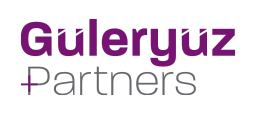Guleryuz Partners at a Glance
We are Güleryüz Partners, an Istanbul based law firm, offering high-quality legal services to domestic and multinational clients.
Our team consists of energetic young professionals who are led by talented partners with strong academic backgrounds at prestigious universities in the USA, UK, and Germany, coupled with vast market experience exceeding a decade at top tier Turkish law firms. All our associates are fluent in English and provide legal advice in additional languages such as German and French.
Our practice ranges from complex disputes to sophisticated M&A and finance transactions. We provide niche legal services in a wide range of legal areas such as litigation and dispute resolution, local and cross border M&As, banking, finance and capital markets, venture capital investments and start-ups, and compliance and corporate governance (including data privacy, anti-corruption and white-collar crime, AML, and sanctions).
We value strong communication and information flow among our departments for the perfection of our legal services. This interdepartmental coordination enables us to take a more client-centric approach and to better understand and cater for the client needs. Our business perspective goes beyond providing excellent legal advice to our clients; we also collaborate with them as their business partners and offer them the entire legal ecosystem that they can thrive their business.
As Güleryüz Partners, we heavily invest in our pro bono projects in Turkiye and work together with institutions, foundations, and other organizations to provide legal advice to the persons in need of help, while acknowledging the high costs usually associated with high quality legal services limit the access to justice for many people.
We also pride ourselves on fostering and promoting a diverse, equitable and inclusive work environment where every individual feels valued and respected.
For further information, you may visit our website at www.guleryuz.av.tr.

